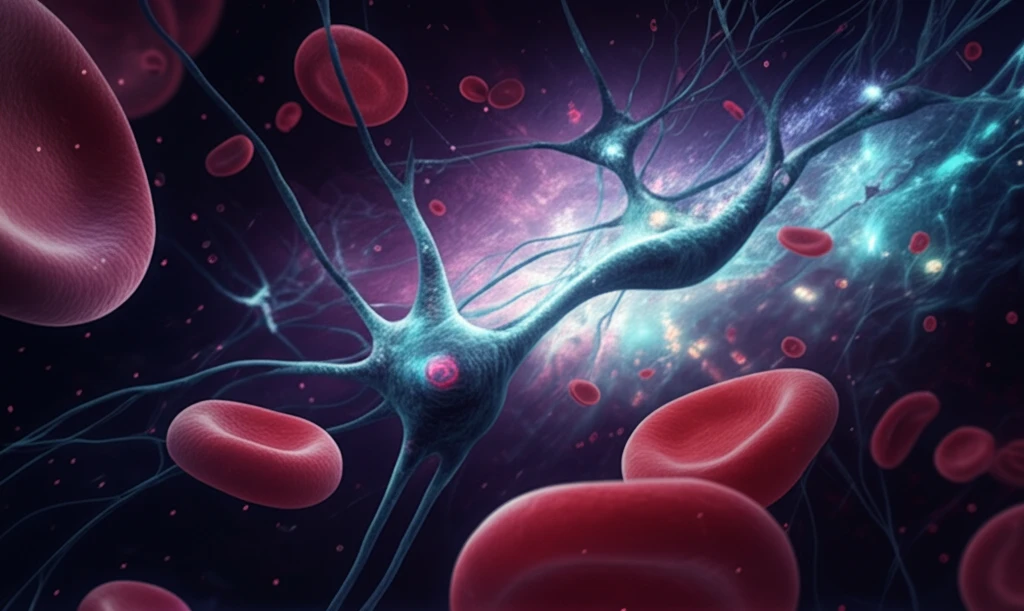
Unlock Your Brain's Potential: How Blood Tests Could Predict Cognitive Performance
"New research suggests that analyzing blood lymphocytes might offer insights into individual variations in cognitive abilities, paving the way for personalized strategies to enhance brain function."
In today's fast-paced world, cognitive performance—our ability to think, remember, and reason—is more critical than ever. While factors like sleep, nutrition, and exercise are known to influence brain function, groundbreaking research is beginning to uncover deeper connections between our bodies and our minds. Imagine a future where a simple blood test could predict your cognitive strengths and weaknesses, allowing for targeted interventions to optimize your mental performance.
A recent study published in Physiology & Behavior delves into the fascinating relationship between NMDA receptors found in blood lymphocytes and cognitive variations in healthy individuals. The researchers, led by Mitra-Sadat Sadat-Shirazi, Ghorbangol Ashabi, and Mohammad-Reza Zarrindast, explored whether these receptors, typically associated with brain function, could also serve as indicators of cognitive performance when analyzed in blood samples.
This article breaks down the key findings of this research, explaining how it could revolutionize our understanding of cognitive function and potentially lead to innovative approaches for enhancing mental abilities. We'll explore the science behind the study, its implications, and what it could mean for you.
The Brain-Blood Connection: What Are NMDA Receptors and Why Do They Matter?

To understand this research, it's essential to grasp the role of NMDA receptors. NMDA receptors (N-methyl-D-aspartate receptors) are crucial for brain function, playing a key role in learning, memory, and overall cognitive processing. They are primarily found in nerve cells in the brain and are essential for synaptic plasticity, which is the brain's ability to change and adapt in response to experience.
- The new study tries to measure PBL's receptors changes as a marker of the neuronal receptor.
- NMDA receptors play key role in synaptic plasticity.
- NMDA receptors also exist in peripheral blood lymphocytes.
The Future of Cognitive Enhancement: A Personalized Approach
The findings of this study offer a tantalizing glimpse into the future of cognitive enhancement. Imagine a world where individuals can undergo a simple blood test to identify their cognitive strengths and weaknesses. This information could then be used to develop personalized interventions, such as targeted brain training exercises, dietary modifications, or even pharmacological treatments, to optimize their cognitive performance. It underscores the importance of continued research into the intricate connections between our bodies and minds, paving the way for personalized strategies to unlock our full cognitive potential.
